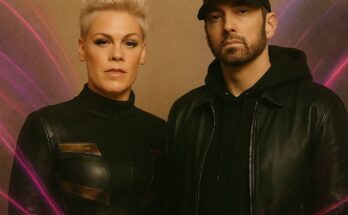Brian Urlacher Breaks Down How Caleb Williams Can Rewrite Chicago’s Future—And Why 2025 Is His Make-or-Break Season
When Brian Urlacher speaks about the Chicago Bears, it’s not idle nostalgia. The Hall of Fame linebacker who anchored one of the most ferocious defenses of the modern era has spent a lifetime reading offensive tendencies, understanding team culture, and measuring what separates hype from history. So when Urlacher took time to publicly chart what Caleb Williams must do to succeed in 2025, Bears fans perked up. The franchise’s trajectory, for better or worse, now pivots around the rookie quarterback’s ability to handle an avalanche of expectations, resurrect an offense that has staggered through decades of instability, and finally put to rest the narrative that Chicago is where quarterback dreams go to die. Urlacher knows what that pressure feels like—even if he experienced it from the other side of the ball—and his blueprint blends technical insights with hard-earned truths about leadership, identity, and resilience in a city that measures greatness by grit as much as glamour.
For Urlacher, it starts with protection. He hammered that point without apology, calling offensive line chemistry “non-negotiable” if Williams is going to survive, let alone thrive. Urlacher played behind great fronts and knows that a quarterback’s confidence starts in the pocket. “You can have the arm, the brain, the scheme,” Urlacher said in a recent interview, “but if you’re running for your life every other snap, you’re not executing anything. Caleb needs trust up front, and that only comes from reps and cohesion.” He’s right: Chicago’s recent history is littered with quarterbacks broken by hits that pile up before reads can develop. Urlacher believes the Bears’ front office understood that lesson when it invested in the line over the last two seasons, but he cautions that raw talent won’t matter without continuity and communication. One blown protection can undo an entire game plan, and Urlacher insists those details must harden in camp if Williams is going to play with a clear head.
Beyond the trenches, Urlacher zeroed in on Williams’ decision-making speed, calling it the hinge trait for a quarterback entering an NFL world that spins faster than anything he saw in college. “Processing isn’t about intelligence alone,” Urlacher said. “It’s about anticipation. In this league, windows close while you’re blinking. If you’re late, it’s six points the other way.” His advice? Own the playbook, live in the film room, and treat every rep like a pressure test. Urlacher drew parallels to his own career, recalling how pre-snap reads gave him his edge. “When you know what’s coming, the game slows down,” he said. “Quarterbacks have to play that chess game every snap. If Caleb can recognize disguises and spin safeties before the snap, he’s already won half the battle.” Urlacher believes that trait separates quarterbacks who flash early from those who sustain greatness, and Chicago has learned the hard way what happens when that layer never develops.
The mental grind looms even larger in Urlacher’s blueprint. Chicago is not a soft landing spot. It’s a cold-weather cauldron of scrutiny, where every throw is dissected and every December wind gust becomes a storyline. Urlacher knows the city’s appetite for football is insatiable and unforgiving. “You can’t ride the roller coaster here,” he warned. “One bad game and they’ll say you’re a bust. One good game and you’re the savior. If you live in those extremes, you’re done. Caleb has to be steady—block out the noise, ride the middle.” Urlacher learned that lesson during years when Chicago defenses carried playoff hopes on their shoulders. He remembers the talk shows, the headlines, the weight of expectation pressing in. What kept him centered was a ruthless focus on preparation and an internal standard higher than any external critique. That’s the mindset he wants Williams to adopt: care about the locker room, the tape, and the trust of your teammates—everything else is static.
Urlacher didn’t shy away from the leadership piece, either. He knows quarterbacks lead differently than linebackers, but the principles overlap: presence, authenticity, and accountability. “Guys can smell fake a mile away,” Urlacher said. “If Caleb tries to be someone he’s not, it won’t work. If he owns his mistakes, works like a madman, and competes every day, veterans will follow. That’s how you turn talent into culture.” Urlacher recalled how his own early seasons were shaped by watching older pros and then slowly claiming his voice through performance. He believes Williams will have to earn that right the same way—by stacking consistent weeks, protecting the football, and showing he’s willing to take hits for the team. Leadership in Chicago isn’t about sound bites; it’s about toughness that shows on film and in huddles when the wind chill is minus ten and the game is tight in the fourth quarter.
Then there’s the intangible Urlacher calls “Chicago weather armor.” It’s shorthand for adapting your game to the brutal elements that define late-season football at Soldier Field. Urlacher laughed when asked if that’s real. “Ask any kicker who’s shanked one into the lake,” he said. For quarterbacks, that means adjusting grip, velocity, and trajectory in wind conditions that mock textbook mechanics. Urlacher advised Williams to master that curveball early—practice with wet balls, throw into gusts, learn how to drive seams without over-rotating. “December separates pretenders from contenders,” Urlacher said. “If you can’t spin it when the wind howls, you’re toast.” The point wasn’t to scare Williams but to underscore that thriving in Chicago means weaponizing the environment, not fearing it. Urlacher believes doing that flips home-field advantage into something visceral: opponents breaking pregame huddles already beaten by the cold while your quarterback grins through the frost.
Urlacher’s blueprint isn’t blind optimism; it’s layered with caution and realism. He acknowledged that rookie quarterbacks rarely glide through Year One and warned against assuming Williams’ highlight-reel college plays will carbon-copy against NFL defenses. “Everybody’s fast here,” Urlacher said. “Everybody hits like a truck. Caleb’s creativity is a gift, but if he bails too quick or tries to play hero ball every snap, defenses will eat that up. Sometimes the smart play is boring—throw it away, take the checkdown, live for second-and-5.” Urlacher argued that embracing simplicity early often accelerates growth later. He cited legendary quarterbacks who mastered the dull stuff before layering in the magic. Chicago fans crave fireworks, but Urlacher believes discipline is the real detonator for long-term success.
He also spotlighted the value of synergy between Williams and offensive coordinator Luke Getsy—or whoever becomes his schematic architect long term. Urlacher has seen careers strangled by misalignment between talent and system. He hopes the Bears tailor concepts to Williams’ strengths—quick rhythm throws, bootlegs that cut the field, vertical shots off play-action—while gradually expanding complexity. For Urlacher, coaching isn’t about forcing players into rigid boxes; it’s about building call sheets that reflect who they are. “Caleb’s legs are a weapon,” he said, “but they’re a tool, not a crutch. Use movement to stress defenses, not to survive chaos.” Urlacher’s emphasis on balance signals his broader point: success won’t hinge on any single trait but on harmony across scheme, skill, and situational awareness.
So why does Urlacher believe Williams can pull this off? Because beneath the star power and NIL-era celebrity, he sees a competitor wired to prove something deeper than endorsement deals. Urlacher has spoken with current Bears veterans who describe Williams as a relentless worker, a player who asks questions in meetings until the answers click, who stays after practice to re-throw concepts that felt clunky in live periods. That hunger matters in a city that romanticizes work ethic as much as arm talent. Urlacher grins when asked if Chicago will embrace Williams if he grinds through rookie bumps. “If the effort’s real, this town will love him forever,” he said. “We’ll forgive picks. We won’t forgive soft.”
What Urlacher is really charting isn’t just a player’s checklist—it’s a franchise’s fork in the road. The Bears haven’t owned a quarterback era since names like Sid Luckman and, briefly, Jay Cutler danced across headlines. They’ve won with defense, survived with special teams, and marketed nostalgia while rivals built fireworks shows. Urlacher knows the city aches for a signal-caller who doesn’t just manage but defines Sundays. He believes Williams can be that if the right habits harden now. Because in Urlacher’s worldview, greatness in Chicago isn’t about highlight tapes—it’s about December wins in horizontal snow, about guts on third-and-long when the stadium shakes, about leadership that whispers louder than hype.
So the map is there: protection, processing, poise, presence, adaptability, patience. Urlacher drew it with the blunt honesty of a man who’s bled for the logo and still cares who wears it next. Whether Williams turns that map into a masterpiece depends on choices made in meeting rooms, on practice fields, and in moments when the game tilts toward chaos. Urlacher’s parting shot summed it up best: “Nobody’s giving you anything in this league—especially not in this city. If Caleb wants it, he has to take it. And if he does? Chicago changes forever.”
The challenge couldn’t be clearer. The stage couldn’t be bigger. And the clock on 2025 is already ticking.



